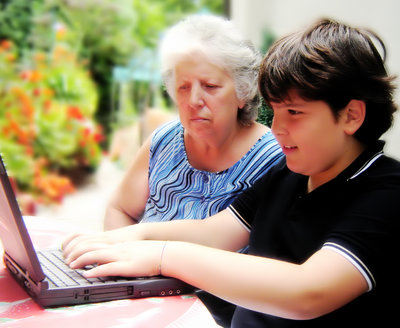 This week the topic’s teen communication — but this time, it’s about how teens communicate with the rest of us. Or don’t.
This week the topic’s teen communication — but this time, it’s about how teens communicate with the rest of us. Or don’t.
There’s a lot more to it than teens trying not to swear when there are little kids around (though that is appreciated, believe me). There’s so much that I’m going to stick to just a few things teens can do to communicate better with other age groups — and their own. These tips work for people of any age, but I’ve focused on what’s likely to be more difficult for teens.
The first two come from the Center for Disease Control (after all, when you deal with diseases, communication is essential).
Small children: Look at them when they talk to you. When a toddler or preschooler is running up to you every few seconds, it may be tempting to keep your eyes on whatever else you’re trying to do. But looking at the child will show them you’re really listening, and that will make it easier for the two of you to communicate when you need to.
Tweens: The CDC describes tweens as “teen wannabesâ€. That means they’ll get very mad, very quickly, if you talk to them as if they’re little kids. But they’re not ready to be spoken to like a teen either. It’s a fine line. Maybe the best way to walk it is to remember yourself as a tween. And if you want to get through to a tween, try calling them or sending a text.
Other teens: Friends should keep each other’s secrets — but you have to draw the line when someone is in danger. For example, the Partnership for Drug-Free Kids urges teens to “make a pact with their friends, promising to call an adult or get emergency medical attention if a friend is unresponsive from drinking too much alcohol.â€
Parents: There’s a lot I could say, as a parent myself, but I think I’ll just make one request: Vent your negative feelings to your parents, not at them. It’s a lot easier to help, or at least listen to, someone who’s not growling or shrieking at us.
Seniors: The CDC reminds us older adults often have hearing and cognitive problems. It helps to keep your language simple — straightforward, not childish — when talking to them. Avoid slang, don’t chew gum or eat while you’re talking — and be patient. It’s worth it to get the benefit of their experience.










